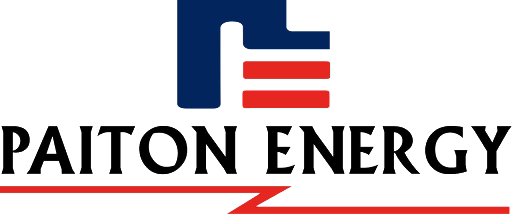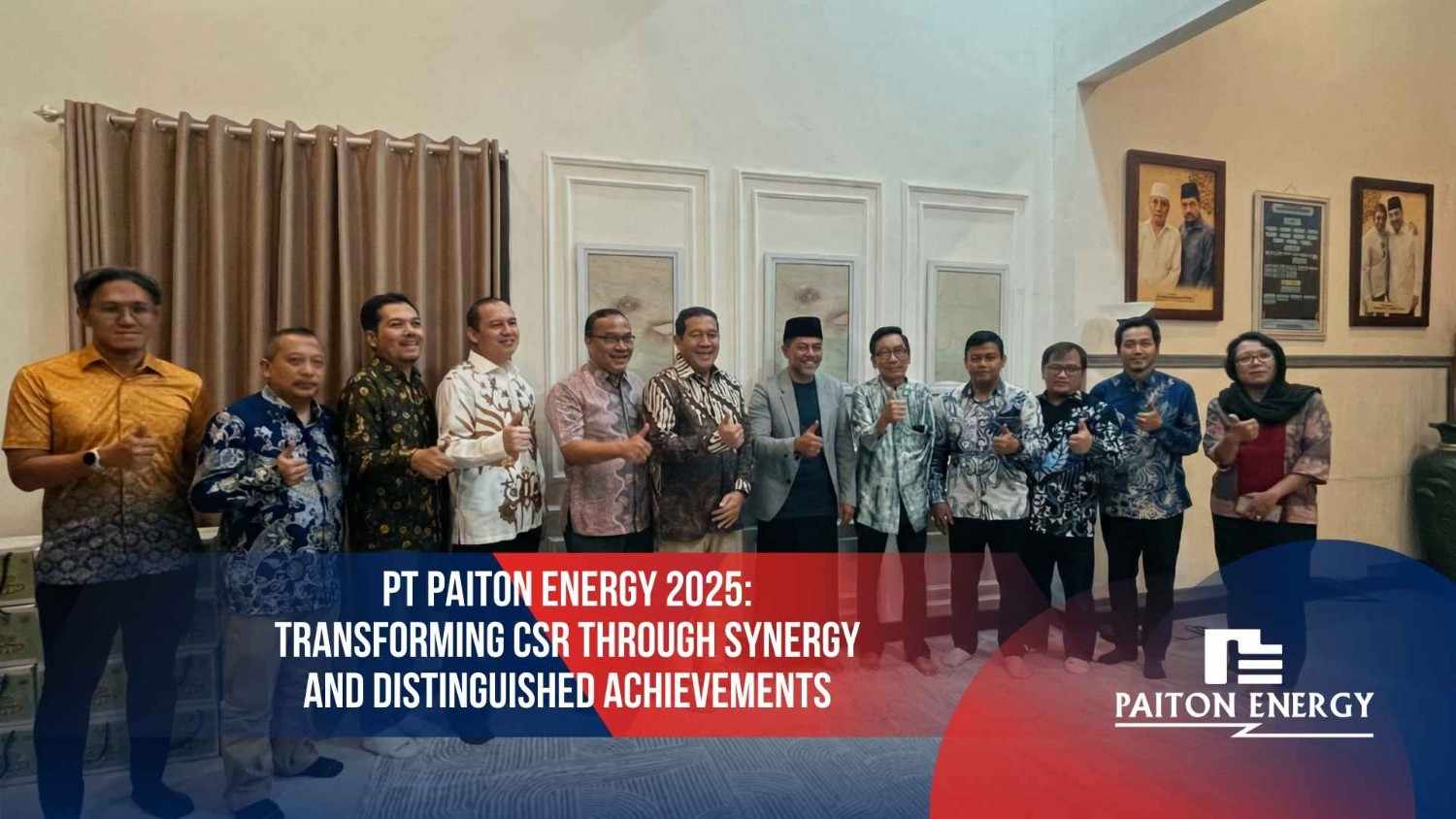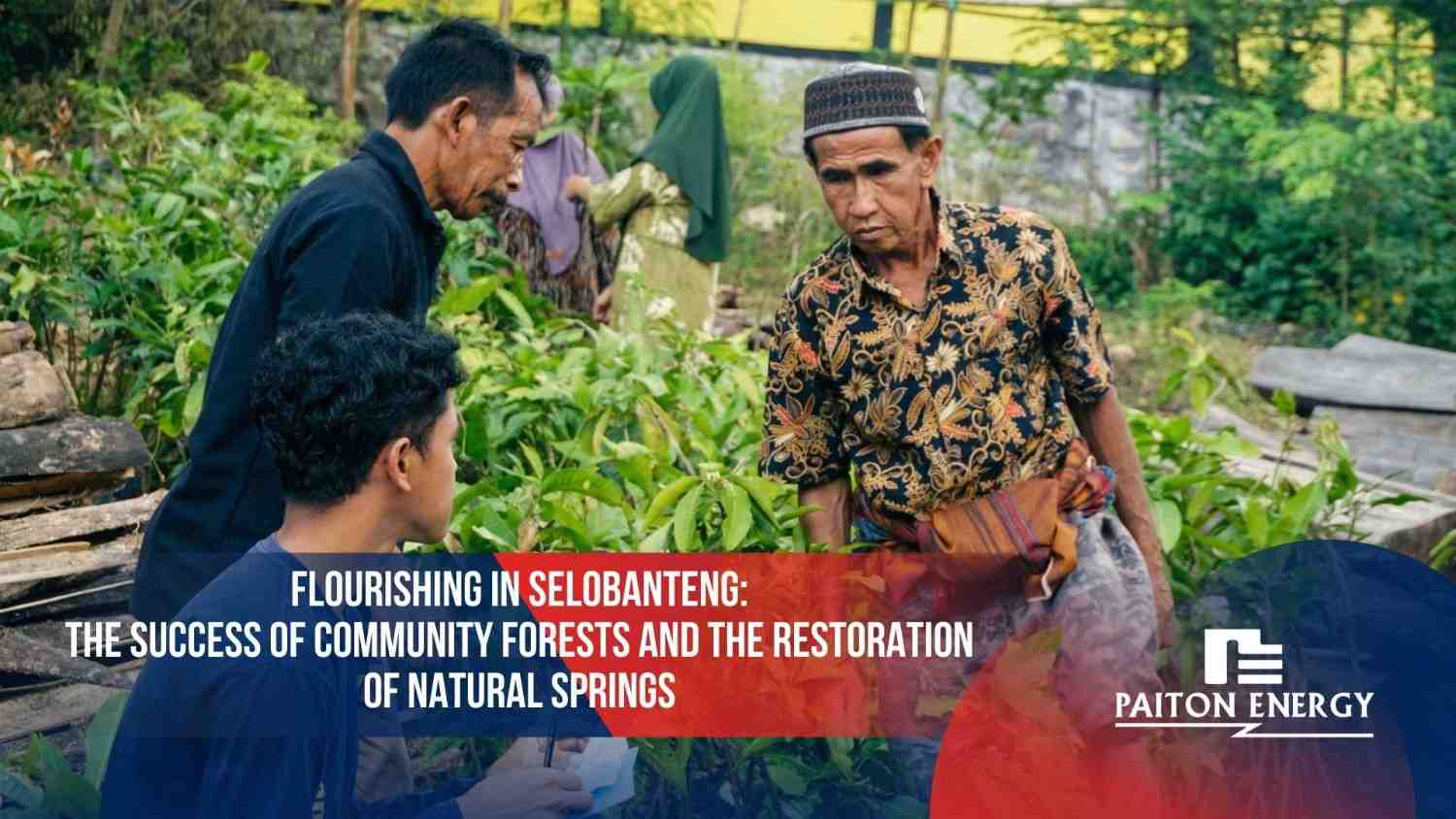Clean water access in Binor Village, Paiton District, Probolinggo Regency, has long been more than just a challenge, it has been a prolonged crisis. As a coastal area, the available water sources are unsuitable for consumption. Residents have had to rely on costly clean water deliveries or travel long distances to meet their basic needs.
Recognizing the urgency, PT Paiton Energy initiated a corporate social responsibility (CSR) program focused on the provision and conservation of clean drinking water. Since its inception in 2006, the program has aimed to ensure the availability of safe, hygienic, and affordable water for the community.
By constructing a clean water pipeline network directly to households, approximately 400 families now have daily access to clean water. This initiative also includes source conservation efforts, such as planting water-retaining trees, drilling artesian wells, and installing solar panels to power water storage operations.
This access to affordable drinking water not only enhances public health but also reduces household expenses significantly, water costs have decreased by up to 90% since the program began.
As an extension of this effort, this was born a bottled mineral water product resulting from a collaboration between the company, the village-owned enterprise (BUMDes), and local MSMEs. This bottled mineral water not only addresses sanitation issues but also paves the way for economic self-reliance within the village.
What Is Mineral Water?
Before delving further, it is important to understand what mineral water is. Mineral water originates from natural sources and contains essential minerals such as calcium, magnesium, and sodium, which provide health benefits. It must meet specific safety and hygiene standards before being deemed suitable for consumption. In the context of Binor Village, previously undrinkable water has now been transformed into quality mineral water through innovation and sound management.
Bottled Drinking Water: From Water Crisis to MSME Product
The water management program in Binor Village evolved into the initiative of a bottled water business co-managed by the BUMDes and local entrepreneurs. This initiative not only provides the community with access to safe, high-quality drinking water but also creates new business and employment opportunities.
Production facilities have been equipped with cup, bottle, and gallon packaging machinery, along with finalized packaging design and quality control systems.
This CSR initiative aligns with two key Sustainable Development Goals:
- SDG 6: Ensure availability and sustainable management of water and sanitation for all.
- SDG 8: Promote sustained, inclusive, and sustainable economic growth, full and productive employment, and decent work for all.
Community members involved in the production and distribution of bottled drinking water have also experienced a notable increase in income through cooperative business units.
How is ready-to-drink bottled water produced?
The availability of ready-to-drink water in Binor Village is the result of a well-integrated technical and infrastructure system. Clean water is sourced from deep artesian wells, part of a larger water conservation strategy led by PT Paiton Energy and its partners through the Paiton bErsiNERGY program.
Once extracted, the water undergoes filtration and purification using high-grade drinking water (AMDK) production machinery. It is then processed into safe and hygienic mineral water, packaged as cups, bottles, or gallons under the bottled drinking water.
The product has received positive feedback, with over 80% of respondents expressing satisfaction with its quality.
Can Piped Water Be Consumed Directly?
It is important to differentiate between piped water and drinking water. The water distributed to approximately 170 households through the piped network is categorized as clean water, meant for daily household needs such as bathing, washing, and cleaning. Although the water quality is generally acceptable, it is not classified as potable. For drinking purposes, the community relies on the bottled water.
Pentahelix Collaboration and Environmental Education
The program employs a pentahelix approach, involving collaboration among government entities, the private sector, academia, community groups, and the media.
In cooperation with POMI under the Paiton bErsiNERGY initiative, regular training and outreach activities are conducted. These include waste management education, water source preservation, and recycling techniques all of which are critical to maintaining the sustainability and quality of the mineral water.
The community is also educated on what mineral water is and why it is essential to consume safe drinking water. This has fostered public awareness, transforming residents from mere consumers into active participants in environmental stewardship and resource management
Recognition and Replication Potential
The success of this initiative was nationally recognized with the Indonesia Green Award 2023 in the category of Water Resource Conservation. This accolade affirms that the program is not merely a regulatory obligation but a genuine contribution to community welfare and environmental sustainability.
Given its success, the drinking water initiative offers a replicable model for other regions facing similar challenges. The integrated approach combining environmental management, local economic empowerment, and community education, forms a solid foundation for sustainable development.
Local mineral water products like bottled water serve as exemplary CSR models, not only surviving but thriving.
Through the initiative, PT Paiton Energy has demonstrated that corporate social responsibility can be a true driver of grassroots transformation. By turning the concept of mineral water into tangible action, providing safe drinking water while fostering local economic participation, the company has made measurable progress toward achieving SDGs 6 and 8 at the village level.
This initiative is not just about distributing water, it’s about flowing hope and building independence from the ground up.




